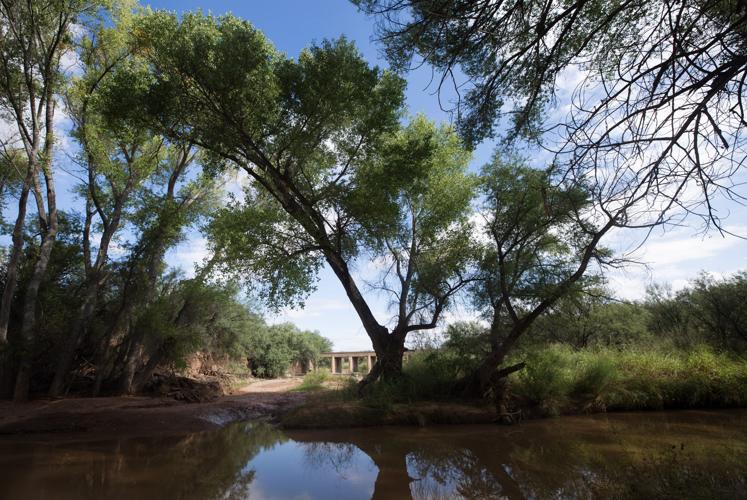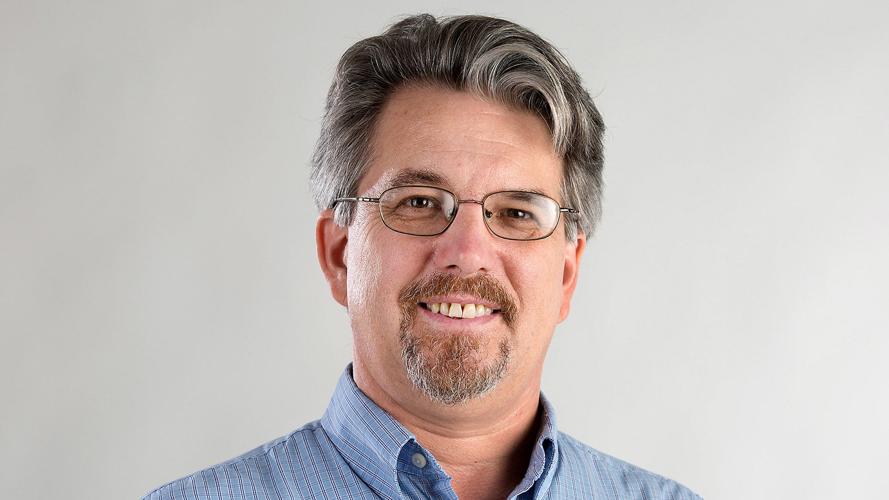Benson’s mayor and vice mayor sounded like they were burning with populist anger.
In a Dec. 6 op-ed published on the Arizona Daily Star opinion page, they railed against “urban elites” and “ivory-tower groups” who want to “inflict economic pain on us” in rural and small town Arizona.
This, of course, was about the proposed Villages at Vigneto development, which would put 28,000 new homes and maybe 60,000 new people — effectively, a new city — along the San Pedro River in Benson.
And it was targeting the chief opponents of the project, the Tucson-based Center for Biological Diversity, noting the high salaries of the center’s three top leaders.
But it turns out the piece was not conceived or originally written by Benson Mayor Toney King or Vice Mayor Joe Konrad. It wasn’t even written by a city staff member, which is a common practice for elected officials.
Emails I received through a public-records request show that it was an urban outsider, the director of a new pressure group favoring the development, who conceived of the op-ed and wrote its original draft, much of which is unchanged in the published version. The elected officials weighed in with some changes and put their names on a piece originally written by a paid advocate for the development.
Development advocates playing downtrodden country folk, it appears, is just the latest tactic in a high-priced campaign to push the mega-development into fruition.
Brian Seasholes is a relatively recent player in this campaign, having announced his arrival in September as head of the new Southwestern Communities Coalition, which supports the Villages project. He came from the Washington, D.C., area, where he has made a career out of fighting federal government mandates to private landholders under the Endangered Species Act.
In a Sept. 5 email to King and Konrad, Seasholes wrote: “Would you be interested in me helping write an op-ed that would have both your bylines?”
He went on to use some of the language that would color the op-ed draft he sent two days later: “One theme I’ve heard from folks in Benson and Cochise County is that elected officials are very able to manage their municipalities, but unfortunately local control has been usurped by outsiders who think they know better than the locals.”
He goes on, “So it is quite astonishing, to say nothing of galling, that a bunch of ivory tower, urbanites from Tucson now think they know best how to manage Benson.”
There’s a lot to unpack here. First, it’s important to realize Seasholes had just arrived from a metropolitan area of 6 million people, where he owns a home worth around $600,000, the kind that many “urban elites” aspire to.
Notice also the use of the word “folks.” This concept has been around forever in American rhetoric — rural people are portrayed as wholesome “folks,” while city people are disparaged as morally dubious.
Then there’s the idea of local control having been usurped by outsiders. Seasholes presented it as an idea he’d heard from the folks in Cochise County, apparently over his couple of months in the area, but it has also been a feature of his writing for years. A neat summary of his perspective might be: Local property owners can better conserve threatened wildlife than the federal government can by imposing Endangered Species Act mandates on them.
There’s nothing wrong with making this argument, but it is not necessarily the product of the “folks” in Cochise County.
Then there’s the fact that the San Pedro River flows not just through Benson, but through other parts of Cochise County, the edge of Pima County, Pinal County and the edge of Gila County. Residents of those counties, too, have a right to weigh in on a development that could dry out the surface water on this rare desert river. It’s not just a Benson issue.
Seasholes apparently met with the mayor, vice mayor and others to discuss the piece before it was published, the emails show. He declined to be interviewed but asked me to email him questions. I sent seven questions, and his response ignored most of them. King and Konrad did not respond to requests for interviews, functionally deferring to Seasholes’ response.
In his email Seasholes wrote: “The op-ed was the result of a collaborative process between the Mayor, Vice Mayor and me that involved: listening to and understanding issues and concerns of the Mayor and Vice Mayor; understanding and gathering facts and data surrounding these issues and concerns; gaining a sense of how, including words and emotions, the Mayor and Vice expressed their views and concerns; and my offer to help the Mayor and Vice Mayor by putting their ideas, issues, concerns, words and emotions on paper in an op-ed.”
At its heart, the op-ed supports the construction of the Villages at Vigneto project, arguing it would be a massive jolt to the moribund Cochise County economy. It would be, of course, but the question is the gigantic scale of the development and the resulting environmental impacts.
The piece also contains some interesting research on the Center for Biological Diversity’s top three employees. The center’s 990 tax forms show that Robin Silver, Kieran Suckling and Peter Galvin all made between $277,000 and $289,000 of total compensation in the last reported year, 2017. In Tucson, and especially compared to small-town salaries, that is shockingly high.
Of course, Seasholes declined to tell me how much he is making, and his employer’s tax disclosures will not be available for a long time. In its published version, the op-ed says, “Rural Arizonans are engaged in the battle of our lifetimes against rich, well-funded urban elites determined to impose their callous, cruel and inhumane views.”
But who exactly does Seasholes’ coalition represent anyway? His new organization includes on its board Mike Reinbold, who has been a top representative of El Dorado Holdings, the developer of Villages at Vigneto.
Lurking in the background of the debate is Mike Ingram, the founder of El Dorado Holdings. Among the questions Seasholes declined to answer is how much the developers of the Villages project have contributed to the Southwestern Communities Coalition.
Until he answers that question, it is fair to wonder whether Seasholes and his “coalition” are just another front for Ingram, who, by the way, owns a house in Paradise Valley measuring about 10,000 square feet and worth about $5 million.
And Ingram has big-name Washington D.C.,-based lawyer Lanny Davis representing his development, too.
Urban elites, indeed!
The whole elitism phrasing and argument is an extension of the “liberal elite” trope in politics, which conservatives have touted in one form or another at least since the 1950s. I asked Michael Lee about its origins because Lee, a professor of communication at the College of Charleston, wrote a 2014 book called “Creating Conservatism: Postwar Words that Made an American Movement.”
The “liberal elite” concept may have made its first appearance in William F. Buckley’s famous 1951 book, ”God and Man at Yale,” Lee told me. But since then, it has evolved into an apparently focus-group-tested, malleable phrase for the ages. Among the versions: “Ivy League elite,” “Hollywood elite,” “global elite, “media elite,” “coastal elite,” “cosmopolitan elite,” and, yes, “urban elite.” People, especially elites, find an enemy elite appropriate to their fight.
But all that labeling is silly and beside the true points of contention in the argument over the Villages at Vigneto project. The real questions are whether the groundwater pumping required for the mega-development is likely to dry up the San Pedro River, and if the developers have the right to go ahead with it anyway.
If the mayor and vice mayor win the debate, and the project is built, then they can drop the aw-shucks act and consider themselves members of a new urban elite, in the metropolis of Benson.







